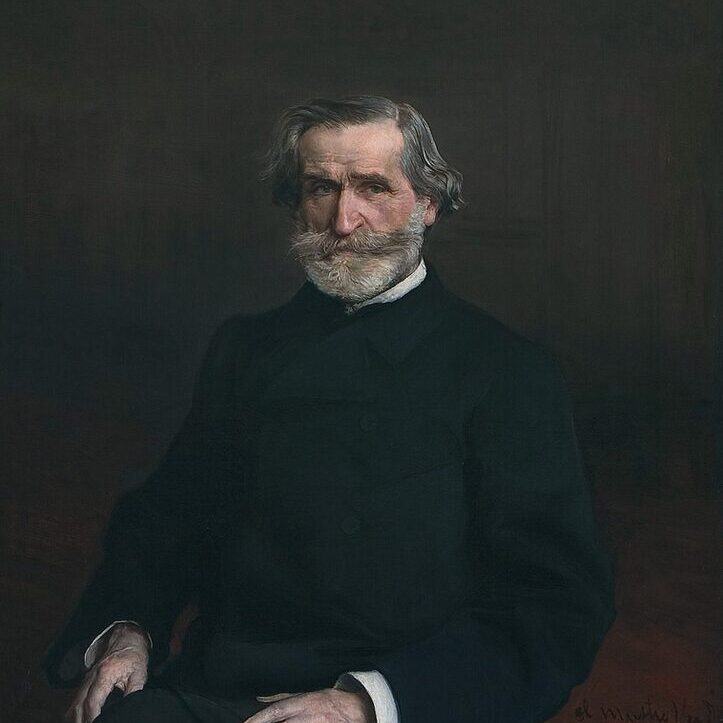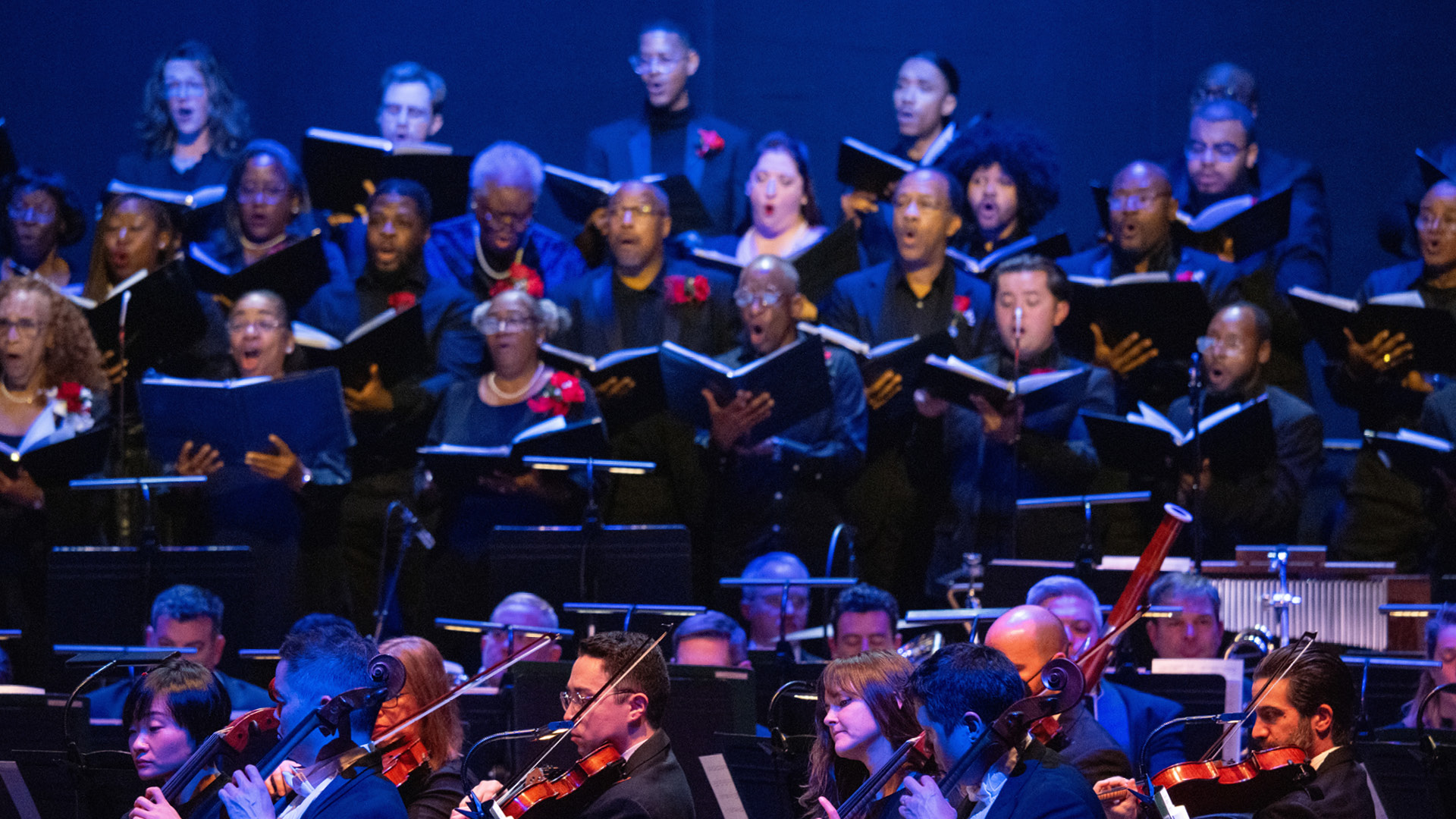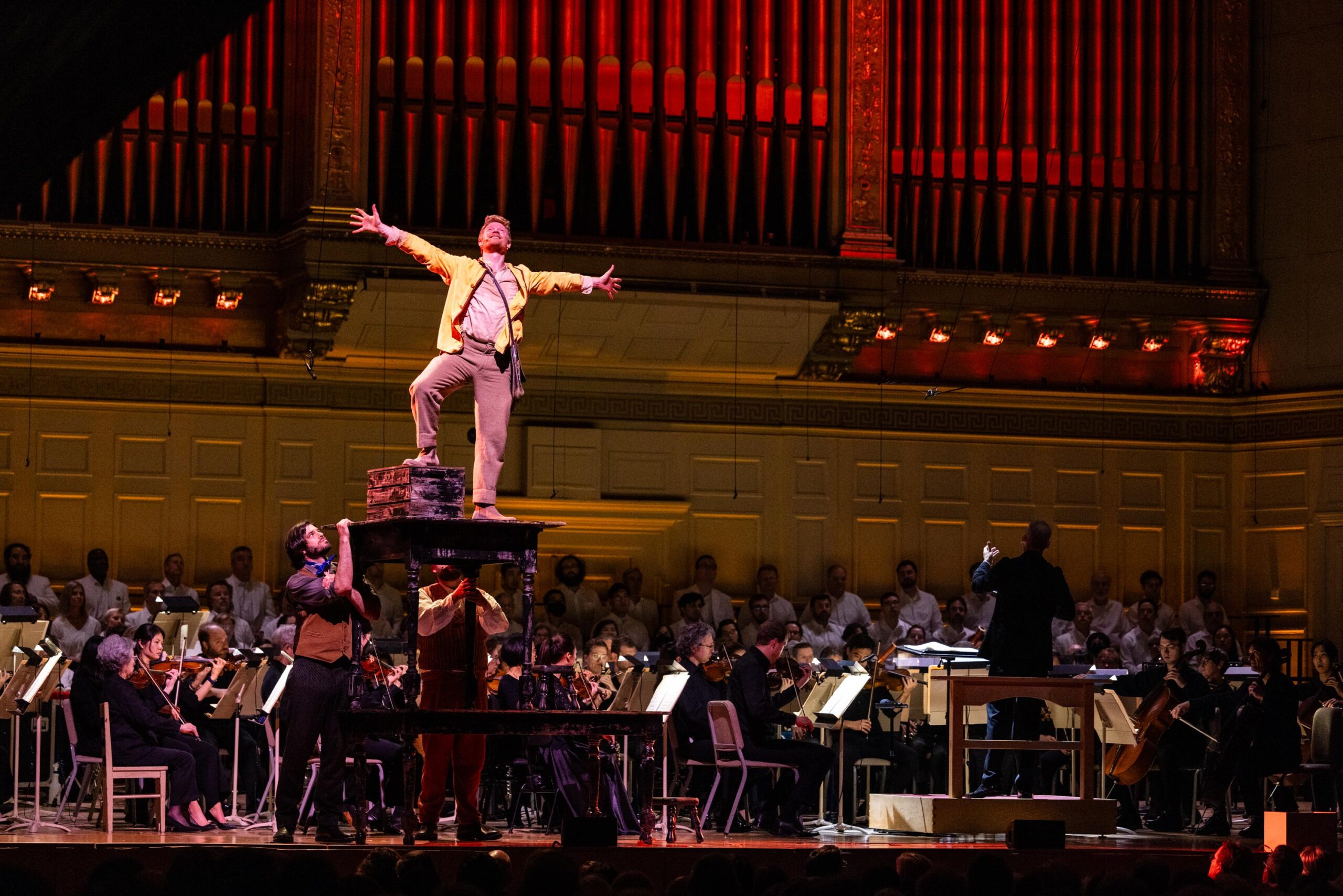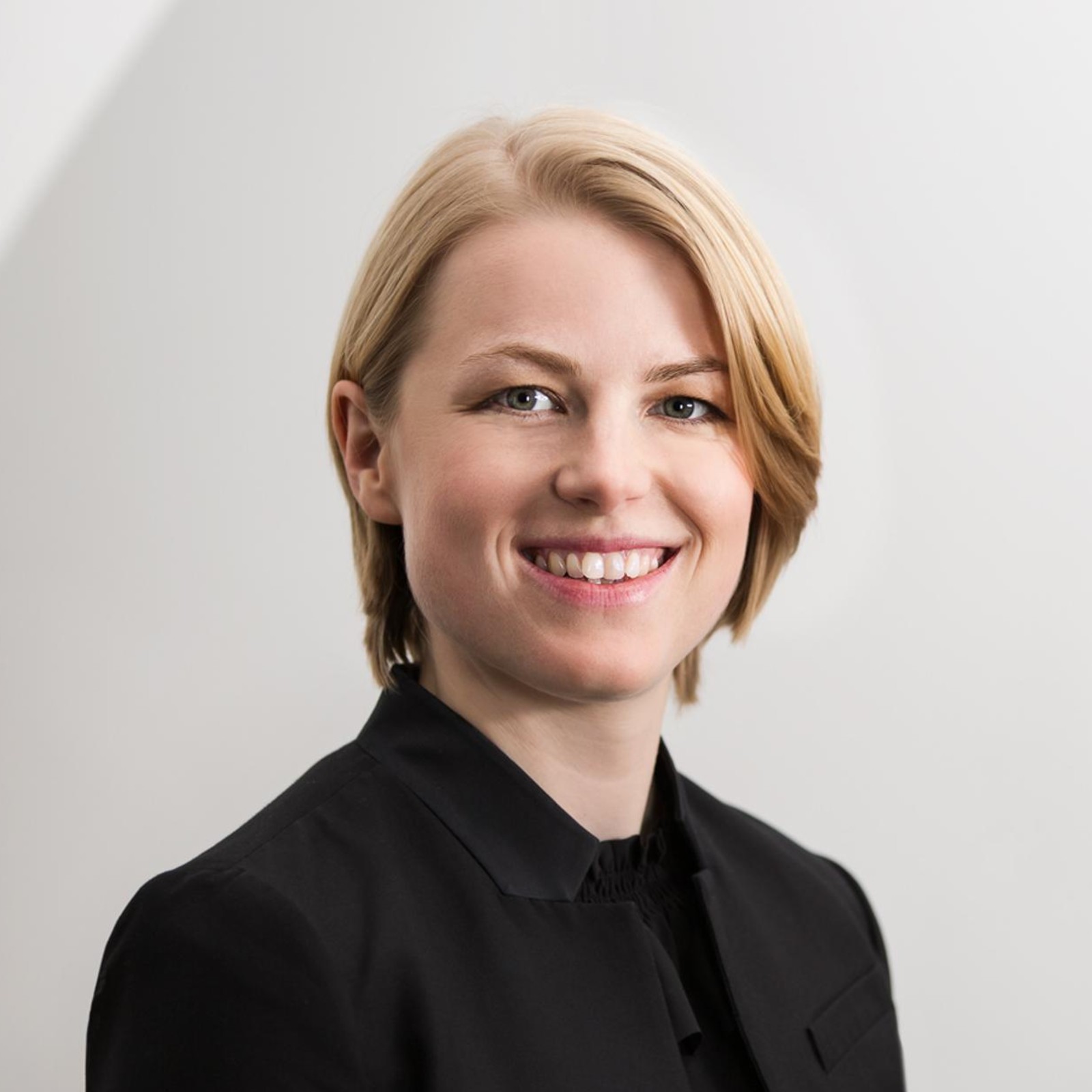Verdi’s Requiem (April 27-28, 2024)
Program
April 27-28, 2024
- Stéphane Denève, conductor
- Hulkar Sabirova, soprano
- Judit Kutasi, mezzo-soprano
- Russell Thomas, tenor
- Adam Palka, bass
- St. Louis Symphony Chorus
- Benjamin Rivera, guest director
Giuseppe Verdi
- Requiem and Kyrie (solo quartet, chorus)
- Dies iræ
- Dies iræ (chorus)
- Tuba mirum (chorus)
- Mors stupebit (bass)
- Liber scriptus (mezzo-soprano, chorus)
- Quid sum miser (soprano, mezzo-soprano, tenor)
- Rex tremendae (solo quartet, chorus)
- Recordare (soprano, mezzo-soprano)
- Ingemisco (tenor)
- Confutatis (bass, chorus)
- Lacrimosa (solo quartet, chorus)
- Offertorium
- Domine Jesu Christe (solo quartet)
- Hostias (solo quartet)
- Sanctus (double chorus)
- Agnus Dei (soprano, mezzo-soprano, chorus)
- Lux æterna (mezzo-soprano, tenor, bass)
- Libera me (soprano, chorus)
Performed without intermission
Program Notes
Requiem
Giuseppe Verdi
Born 1813, Roncole, Italy
Died 1901, Milan, Italy

Spiritual and Patriotic Inspiration
Giuseppe Verdi’s Requiem is the composer’s most important religious work and one of the great musical settings of the Roman Catholic Missa pro defunctis (Mass for the Dead). That it is also perhaps the most original and unusual of the great musical settings of this liturgy reflects the composer’s highly individual beliefs, values, and ideals. Verdi was not an overtly religious man, but he was an ardent patriot. Italian nationalism and the glorification of Italian culture were sacred causes for him, and the men he venerated were freedom fighters, such as Giuseppe Garibaldi (1808–1882), and those artists whose work he regarded as essentially and purely Italian. Two creative personalities were especially important to Verdi: Gioachino Rossini, his predecessor as the foremost composer of Italian opera; and Alessandro Manzoni, a writer and statesman whom Verdi called “The Saint.” The passing of each of these men inspired Verdi’s great Requiem Mass, which may accurately be heard as a patriotic as well as a spiritual statement.
A Christian Estranged from the Church
Verdi’s relationship with the Catholic Church was complex and problematic. Like nearly all Italian children of his time, he had attended a parish school, sung in the local church choir, and served as an altar boy. But from an early age, he rebelled against clerical authority.
According to a story the composer often recounted in his later years, while assisting at a mass one day when he was seven years old, he became distracted by the playing of the church organ. Entranced by the music, he failed to hear the officiating priest ask for the containers of ritual water and wine. When he failed to respond, Verdi received a cuff on the head that knocked him to the floor. Struggling to his feet, the humiliated boy cursed his assailant, shouting “May God strike you with lightning.” (Four years later, the tormenting priest was indeed one of six people killed by lightning in a particularly violent thunderstorm.)
Verdi’s distrust of the clergy remained with him all his life. “Stay away from priests,” he advised a young cousin, and he did so himself. Estranged from the institution of the Catholic Church, the composer seemed to many who knew him a confirmed agnostic. Even his wife, the singer Giuseppina Strepponi, was exasperated by his apparent lack of faith. She once wrote of Verdi:
Nevertheless, Strepponi acknowledged that while her husband seemed indifferent to the letter of Church doctrine, he instinctively upheld its spirit. Writing to another correspondent, she ventured that “there are some highly virtuous people who need to believe in God; and there are others, no less admirable, who are quite happy to believe in nothing at all, while rigorously observing every strict moral precept.” Her husband, of course, exemplified the latter type of person. A similar observation was made by Arrigo Boito, the librettist for Verdi’s last two operas (Otello and Falstaff). Following the composer’s death in 1901, Boito recalled of Verdi that:
Remembering Great Men
If Verdi’s faith was ambivalent at best, his reverence for his musical idol Rossini and his political hero Manzoni were unquestionable. And if religious sentiments inspired the composer’s Requiem in a general way, the passing of each of these men propelled its creation in a quite specific and concrete fashion.
Rossini died in November 1868. While not personally familiar with the composer of The Barber of Seville and William Tell, Verdi had long regarded Rossini as “a glory of Italy,” as he told a correspondent, and he now conceived a unique sort of tribute to the late musician’s memory. According to Verdi’s idea, 13 of Italy’s leading composers would contribute movements to a requiem mass to be performed on the anniversary of Rossini’s death. Verdi himself set about writing the closing Libera me. Unfortunately, this project ran aground on the shoals of ruffled artistic vanities and personal dissension, and never came to fruition. Verdi briefly considered completing the mass himself, but he had important opera commissions to fulfill, not the least being the creation of Aida to commemorate the opening of the Suez Canal.
Five years later, however, the death of Manzoni prompted Verdi to revive his idea for a requiem mass. The author of novels, plays, and poetry, Manzoni was Italy’s leading man of letters during the first half of the 19th century. He was also an ardent supporter of the struggle for Italian independence and unification, as was Verdi. On June 3, 1873, the composer wrote to his publisher:
Unlike the projected mass for Rossini, this plan came to splendid fruition. Using the Libera me and sketches for a Dies irae he had written for the abortive Rossini memorial, Verdi spent much of the next year composing his Requiem. He completed the score in April 1874 and directed its first performance in Milan on May 22, exactly one year after Manzoni’s death, just as he had intended.
Verdi’s Triumph
Audience reaction to the work proved enormously favorable, both in Milan and at subsequent performances that Verdi led in Paris, London, Vienna, and Germany. Some critics were distressed at the overtly theatrical character of the music, a predictable reaction with ample historical precedent. (Handel’s Messiah, for example, had been criticised on precisely the same grounds.) Among those hostile to the work was the pianist and conductor Hans von Bülow, an acolyte of Verdi’s great contemporary Johannes Brahms. Perhaps thinking he was defending Brahms’s German Requiem against an Italian rival, Bülow wrote an article deriding the piece as Verdi’s “latest opera, though in ecclesiastical vestments.” The rebuttal came from Brahms himself. “Bülow has made an almighty fool of himself,” the German composer said after becoming acquainted with Verdi’s Requiem. “Only a genius could have written such a work.”
There is no denying the operatic quality of the music. But what escaped Bülow and other critics, and which Brahms evidently perceived, is that the composition’s most overtly dramatic moments also provide its most moving and even its most devout passages. The whirling tumult of the Dies irae, for example, or the majestic trumpet summons in the Tuba mirum convey a terrifying vision worthy of those in the biblical Book of Revelation. Theatrical they may be (the Tuba mirum adds four offstage trumpets to the orchestra for spatial and dramatic effect) but they are neither extraneous nor irrelevant to the text of the Mass for the Dead, nor sacrilegious in any meaningful way. Verdi was by nature a dramatic composer, and it was natural for him to interpret the descriptions of the Final Judgment in dramatic terms.
Indeed, it seems unlikely that Verdi could have written a large sacred composition in any other manner. Whatever religious sentiments he may or may not have harbored, he had no use for conventional displays of piety, and this made any conventional kind of ecclesiastic music out of the question. Not that such music would have been beyond his capacity. Verdi’s musical knowledge and skill extended beyond the stylistic realm of the theater, as we know from such works as his String Quartet and Four Sacred Pieces for chorus and orchestra. But he was best able to express himself in the emotionally charged idiom of Italian opera.
With his Requiem, Verdi showed that this idiom could transcend its usual milieu and serve the most serious religious purpose. As such, the work glorified the musical language of Italian Romantic opera and the nation for which such music was a prime cultural emblem. At the same time, Verdi’s Requiem stands as an honest spiritual testament from a man who naturally conceived and described his experiences, his emotions, even his spiritual outlook in powerful, direct and, yes, theatrical terms.
Paul Schiavo © 2014
| First performance | May 22, 1874, in Milan’s San Marco, conducted by the composer with soloists Teresa Stolz, Maria Waldmann, Giuseppe Capponi, and Ormondo Maini, and a specially assembled chorus and orchestra. |
| First SLSO performance | March 3, 1887, at the Exposition Music Hall, Egmont Froelich conducting the St. Louis Choral Society and Orchestra, with soloists Hortense Pearse, Pauline Schuler-Bollman, Charles A. Knorr, and William M. Porteous. |
| Most recent SLSO performance | March 8, 2014, Rafael Frühbeck de Burgos conducting with soloists Angel Blue, Julia Gertseva, Aquiles Machado, and Riccard Zanellato, and the St. Louis Symphony Chorus. |
| Instrumentation | vocal soloists (soprano, mezzo-soprano, tenor, bass) and large mixed chorus; 3 flutes (3rd doubling piccolo), 2 oboes, 2 clarinets, 4 bassoons, 4 horns, 4 trumpets, 4 offstage trumpets (in the Tuba mirum), 3 trombones, tuba, timpani, bass drum, strings |
| Approximate duration | 1 hour and 24 minutes |
Artists
Hulkar Sabirova

Hulkar Sabirova is a dramatic coloratura soprano with particular strengths in roles by Bellini, Donizetti, Mozart, Rossini, and Verdi. This is her SLSO debut. She began her musical education studying piano and violin in her native Uzbekistan before commencing formal vocal training in Mannheim at age 16. She was a Weisweiler Foundation scholarship holder at Deutsche Oper Berlin in 2009, after which she joined the company as a principal for three seasons, singing such roles as The Queen of the Night (The Magic Flute) and Frasquita (Carmen). She was also a member of the ensemble at the Kassel State Theatre, where her role debuts included Iphigénie (Iphigénie en Tauride), Vitellia (La clemenza di Tito), and the title role in Norma.
She continues to appear frequently as a guest with Deutsche Oper Berlin, including Rosalinde (Die Fledermaus), the title role in Lucia di Lammermoor, Donna Leonora (La forza del destino), First Flower Maiden (Parsifal), and Madama Cortese in Il viaggio a Reims, and in 2024/25 she will sing the title role in Aida. Last year she was a soloist in two staged presentations of Verdi’s Requiem: at the Theater St. Gallen in Switzerland, and in Christian Spuck’s celebrated production with the Berlin State Ballet and Berlin Radio Choir.
Other recent highlights include reprising the role of Rosalinde for new productions at Deutsche Oper, Semperoper Dresden, and Hamburg State Opera, and role debuts as Leonora di Vargas in La forza del destino and Hélène in Les vêpres siciliennes with Deutsche Oper. In Hamburg she has also sung Constanza (The Abduction from the Seraglio) and the title role in Alcina. At National Theater Mannheim her roles include Donna Leonora and Valentine (Les Huguenots), and for the Teatro Real Madrid she has sung Elettra (Idomeneo). Her festival appearances have included the St. Gallen and Savonlinna Opera festivals, and the Rossini Festival in Pesaro, where she sang Contessa de Folleville (Il viaggio a Reims).
Judit Kutasi

Romanian-Hungarian mezzo-soprano Judit Kutasi has been praised for her dark-toned voice, well suited to Verdi roles. After studying in Romania, she participated in the Zurich Opera Studio (2013/14) followed by two seasons as an ensemble member of Zurich Opera. In 2016/17 she was a Walter Sandvoss Fellow at Deutsche Oper Berlin and has appeared frequently for the company ever since. She has also sung roles for Bavarian State Opera, La Scala Milan, State Opera Hamburg, Paris National Opera, and Gran Teatre del Liceu.
This season she made several major debuts, including her first performances in the U.S. as Preziosilla (La forza del destino) for the Metropolitan Opera and Ortrud (Lohengrin) for San Francisco Opera, as well as her first appearances for the Royal Danish Opera, the Salzburg Festival, and the SLSO (singing Verdi’s Requiem in each case). She also sang Erda (Siegfried) in concert at the Amsterdam Concertgebouw and appeared in one of her signature roles, Amneris, in Hungarian State Opera’s Aïda.
A sought-after artist on the concert stage, she has sung Beethoven’s Ninth Symphony at the BBC Proms with the World Orchestra for Peace conducted by Donald Runnicles, and Bruckner’s Te Deum at La Scala Milan, as well as Catherine in Honegger’s Jeanne d’Arc au bûcher with the Royal Concertgebouw Orchestra. Last season, her concert appearances included Stravinsky’s Les Noces at the Elbphilharmonie Hamburg and Bernstein’s Symphony No. 1 (Jeremiah) at Hannover State Theater.
Recent stage highlights have included appearing at short notice as Amneris in Bavarian State Opera’s new production of Aïda, and as the Princess de Bouillon in Adriana Lecouvreur for La Scala Milan, as well as singing Erda (Das Rheingold) for Deutsche Oper Berlin under Runnicles, Amneris at both the Arena di Verona and the Bavarian State Opera under Zubin Mehta, and Maddalena in performances and a DVD recording of Andrea Chénier at La Scala under Riccardo Chailly.
Russell Thomas

American tenor Russell Thomas is an alumnus of the Lindemann Young Artist Program at the Metropolitan Opera and his apprenticeships included Opera Theatre of Saint Louis. Since then he has enjoyed operatic triumphs in key Verdi roles, including Otello (Canadian Opera Company, LA Opera and Royal Opera House), Ernani (Lyric Opera of Chicago), Manrico in Il trovatore (Bavarian State Opera), Radamès in Aida (Houston Grand Opera and LA Opera), Stiffelio (Opera Frankfurt), and Don Alvaro in La forza del destino (Deutsche Oper Berlin and Paris National Opera). As a soloist in Verdi’s Requiem, he has performed with the New York Philharmonic, Baltimore Symphony Orchestra, and National Symphony Orchestra (Washington DC), as well as in Barcelona.
His concert repertoire also includes Mahler’s Song of the Earth, Stravinsky’s Oedipus Rex, and Beethoven’s Ninth Symphony, and he has performed with such orchestras as the Vienna Philharmonic and at the BBC Proms, as well with the Los Angeles Philharmonic, New York Philharmonic, Boston Symphony Orchestra at Tanglewood, and the symphony orchestras of Dallas, Detroit, Atlanta, Seattle, and Houston. He also joined the Met Orchestra for their first international tour in more than 20 years, singing New York, Paris, London, and Baden-Baden. More recently he returned to the Met stage to sing Rodolfo (La bohème) and the title role in Don Carlos.
Highlights of the 2023/24 season have included his first Parsifal (Houston Grand Opera) and his Hamburg State Opera debut (Don Carlos), as well as concerts with the Edinburgh International Festival, Chicago Symphony Orchestra, and Vocal Arts DC at the Kennedy Center. In June he concludes a three-year artistic residency at LA Opera with the premiere of Fire and Blue Sky, a song cycle written for him by Black composer Joel Thompson. He also created roles in the John Adams works A Flowering Tree and The Gospel According to the Other Mary.
Adam Palka

Polish-born bass Adam Palka studied at the Gdansk Conservatory in Poland and is a graduate of the Zurich Opera Studio. A former member of Baltic Opera and Deutsche Oper Berlin, he has been a member of the Stuttgart State Opera since 2013 and in 2021 was honored with the title “Kammersänger.”
In addition to his debut appearance with the SLSO, highlights of the 2023/24 season include Philip II (Don Carlo), Oroveso (Norma), and the title role in Boito’s Mefistofele in Stuttgart (also singing the atter role for Prague National Theatre), as well as Timur in Turandot and Gremin in Eugene Onegin (Gran Teatre del Liceu), Don Basilio in The Barber of Seville and Vodnik in Rusalka (Vienna State Opera), Count Walter in Luisa Miller (Hamburg State Opera), Méphistophélès in Gounod’s Faust (Canadian Opera Company), and a return to the Royal Opera House to sing Timur.
He has performed on many other prestigious stages worldwide, including La Scala Milan, Berlin State Opera, Bavarian State Opera, Teatro Real Madrid, and Paris National Opera, and his repertoire also includes such roles as Leporello and the Commendatore (Don Giovanni), Fafner (Das Rheingold), Rodolo (La Sonnambula), Escamillo (Carmen), Raimodo (Lucia di Lammamoor), Skula (Prince Igor), Colline (La bohème), Don Basilio (The Barber of Seville), Alidoro (La Cenerentola), and the title role in Boris Godunov.
On the concert platform, he has performed Beethoven’s Ninth Symphony with the Stuttgart Philhamonic, Beethoven’s Missa Solemnis with the Szczecin Philharmonic in Poland, and Verdi’s Requiem in the Philharmonie de Paris and with Orchestre National du Capitole de Toulouse, among others.
Benjamin Rivera

Chicago native Benjamin Rivera has dedicated his career to the inspiring and wonderfully varied art of ensemble singing. He began as a professional singer and performed as a member of the Chicago Symphony Chorus for more than 20 seasons. He also sang with Chicago a cappella, the Grant Park Chorus, and several other ensembles, appearing as a soloist on numerous programs and singing on dozens of recordings.
Having transitioned to full-time conducting, he now holds positions in three states, including Chorus Director and regular conductor of the Fort Wayne Philharmonic, Chorus Master of the Florentine Opera, Choirmaster of the Church of the Ascension, High Holidays Choir Director of Temple Sholom, and Assistant Conductor of the Chicago Symphony Chorus.
He recently prepared the Chicago Symphony Chorus for a performance at the Ravinia Festival under the direction of Marin Alsop. Prior to his appointment to the conducting staff of the Chicago Symphony Orchestra in 2018, he was the Associate Conductor of The Washington Chorus, preparing them for performances with the National Symphony Orchestra at the Kennedy Center and Wolf Trap.
He also works regularly as a guest chorus director, appearing with the Grant Park Chorus, Chicago a cappella, Music of the Baroque, and others. Especially adept with languages, he frequently coaches German, Spanish, and Latin, among others. Dr. Rivera holds degrees in voice and music theory from North Park University and Roosevelt University, respectively, and a DMA in conducting from Northwestern University.
Program Notes are sponsored by Washington University Physicians.


